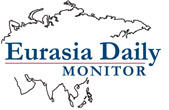 Russia/Broadcasting
Russia/Broadcasting
Washington Post/AP: News Corp. in Talks for Russian TV Stake
"News Corp., the global media conglomerate controlled by Rupert Murdoch, is in talks to acquire a minority stake in a Russian television station, an official close to the talks said Monday."
"Top News Corp. executives met Monday for talks with senior executives from the Russian industrial conglomerate Severstal, which owns a majority stake in the Moscow-based REN TV network, Severstal spokeswoman Olga Antonova said."
"An official familiar with the talks, who asked not to be named because the talks are in progress, said News Corp. wants to buy 35 percent of REN TV."
"REN TV broadcasts in more than 700 towns and cities throughout Russia, and its news coverage is considered liberal compared with the country's three state-controlled national channels."
"Severstal, which is controlled by metals tycoon Alexei Mordashov, purchased a 70 percent stake in REN TV from state electricity monopoly Unified Energy Systems for $100 million in July. German media company Bertelsmann AG holds the remaining 30 percent stake."
Murdoch and other top U.S. and German executives met for closed-door discussions with President Vladimir Putin in St. Petersburg in June.
"News Corp. is one of the largest global media companies with properties including the Twentieth Century Fox movie studio, the HarperCollins book publishing unit, British satellite network BSkyB and newspapers in London, New York and Australia."
"The company is also a major player in Russia's advertising billboards market."













































